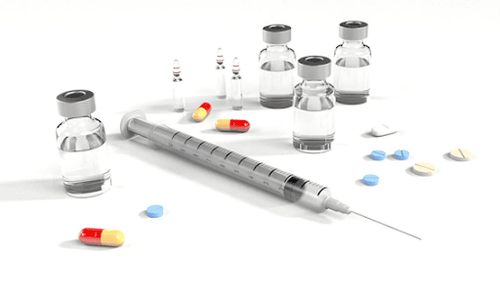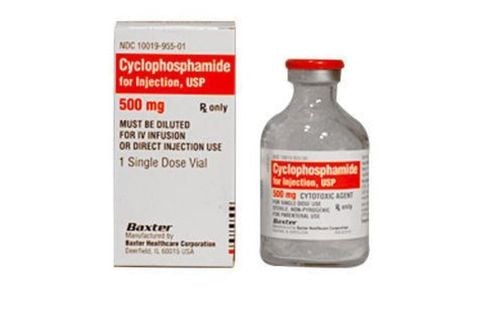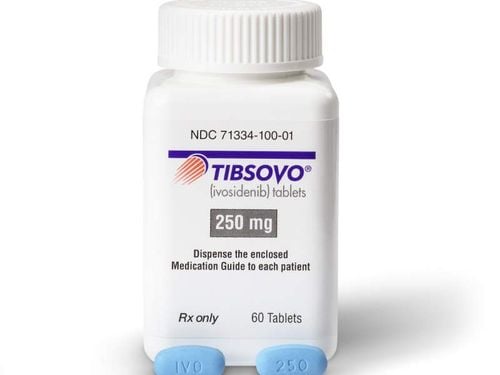This is an automatically translated article.
Eprex 2000 has the main ingredient epoetin alfa, indicated in the treatment of symptomatic anemia associated with chronic renal failure. Refer to the article below to get more information about the use of Eprex 2000.
1. What is Eprex?
Eprex 2000 is available as a pre-packed solution for injection in a syringe. The drug acts on the hematopoietic system, indicated in cases of anemia related to the kidneys.
Epoetin alfa contained in Eprex 2000 is a glycoprotein hormone produced mainly in the kidney in response to tissue hypoxia, which is a key regulator of red blood cell production.
After subcutaneous administration, peak serum concentrations of Eprex 2000 are achieved between 12 and 18 hours after dosing.
The effect of Eprex 2000 on hematology tests is dose dependent but not route dependent.
2. Indications of the drug Eprex 2000
Eprex 2000 is indicated for the treatment of symptomatic anemia associated with chronic renal failure (CRF). Anemia in HIV-infected people Anemia in premature babies Patients on hemodialysis, peritoneal dialysis. In adults with renal failure not requiring dialysis to treat severe anemia of renal origin and associated clinical symptoms. Eprex 2000 is indicated in adult patients receiving chemotherapy for cancer who are at risk for blood transfusion. Eprex 2000 is indicated in adult patients planning autologous transfusion to increase autologous blood collection. The drug should only be used in patients with moderate anemia (hemoglobin (Hb) concentration between 10 and 13g/dL (6.2 to 8.1 mmol/L), without iron deficiency). Eprex 2000 is indicated in adult patients who are not iron-deficient, are preparing for major planned orthopedic surgery and are at high risk for complications from blood transfusion.
3. Contraindications of Eprex 2000
Hypersensitivity to the active substance or to any of the excipients of the drug. Patients who have developed a complication of simple red blood cell aplasia (PRCA) after treatment with erythropoietin-containing preparations should not receive Eprex 2000 or any other erythropoietin-containing products. Uncontrolled hypertension. Eprex 2000 is contraindicated in patients undergoing major orthopedic surgery but not planning to receive autologous blood transfusions and with serious comorbidities involving coronary, peripheral, carotid or cerebrovascular , including patients with recent myocardial infarction or cerebrovascular accident. Surgical patients who cannot receive appropriate thromboprophylaxis for any reason. Note
Monitor and control blood pressure closely while taking Eprex 2000. Eprex 2000 should be used with caution in patients with epilepsy, a history of seizures, or a medical condition that increases the risk of seizures. Patients with chronic liver failure should use with caution. Closely monitor hemoglobin levels during treatment. All other causes of anemia should be evaluated and treated (iron deficiency, folate deficiency or vitamin B12 deficiency, aluminum toxicity, infection or inflammation, blood loss, hemolysis, and bone marrow fibrosis) prior to administration of Eprex. 2000 and when increasing the dose. It is recommended to supplement iron when using the drug for patients with chronic kidney failure, cancer patients, patients planning to have autologous blood transfusion, before major orthopedic surgery,... Not recommended for pregnant women. pregnant and lactating as the benefit of the drug over toxicity to the fetus has not been demonstrated.
4. Dosage and usage
The drug is prepared in the form of an injection solution, used for intramuscular or subcutaneous injection as prescribed by the doctor. Dosage of Eprex 2000 drug is adjusted based on the purpose of treatment of the disease:
Adults on dialysis: Intravenous 50 IU/kg/dose x 3 times/week OR 40 IU/kg/dose x 3 times subcutaneously /week. Patients not on dialysis: 75-100 IU/kg IV per week. HIV-infected patients taking zidovudine: Intravenous or subcutaneous injection 100IU/kg x 3 times/week. The maximum dose is 300 IU/kg x 3 times/week. Cancer patients undergoing chemotherapy: Subcutaneous injection 150 IU/kg x 3 times/week. Blood transfusion for surgical patients: 300 IU/kg/day subcutaneously for 10 days before surgery. Anemia in preterm infants: Subcutaneous injection of 250 IU/kg x 3 times/week (injection from 2nd week of life continuously to 8th week).
5. Side effects of Eprex 2000
During the use of the drug, patients may experience some unwanted side effects such as:
Common: Headache, cough, fever, chills, flu-like symptoms, diarrhea, nausea, vomiting , joint pain, bone pain, muscle pain, pain in the extremities. Uncommon: Venous and arterial thrombosis, hypertension, anaphylactic reactions, hypersensitivity, Hyperkalemia, Convulsions. Rare: RBC aplasia mediated by anti-erythropoietin antibodies, thrombocytosis. The above are not all the side effects of Eprex 2000. If during the course of taking the drug encounter any unusual symptoms, the patient should also notify the doctor to receive advice and treatment measures. timely mind.
Please dial HOTLINE for more information or register for an appointment HERE. Download MyVinmec app to make appointments faster and to manage your bookings easily.













